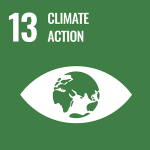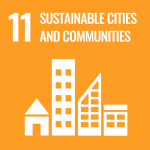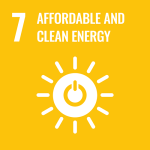
Australia has established mandatory climate-related financial disclosure standards for companies to align with major international developments. This research supports the development of an innovative decision-making tool to promote the achievement of science-based targets and net-zero goals.
The challenge
Corporations worldwide are under increasing pressure to align with climate targets and mitigate financial risks associated with climate change. Publicly listed companies in particular face growing regulatory and investor scrutiny regarding climate-related risks, including physical threats (e.g., extreme weather events) and transition risks (e.g., policy changes, market shifts). Despite international momentum – such as the UK mandating Task Force on Climate-related Financial Disclosures (TCFD) reporting in 2022 – Australia only recently mandated reporting, and many Australian companies still struggle with assessing, benchmarking and reporting their climate actions in line with best practices.
The lack of standardised tools to measure corporate climate risk exposure and assess alignment with net-zero commitments presents a critical gap. Without evidence-based decision-making tools, corporate leaders and executives face challenges in balancing financial imperatives with climate resilience goals. This challenge is compounded by data accessibility issues, inconsistencies in climate risk reporting and the complexity of aligning with science-based targets.
Solution
To address this gap, the Centre for Climate Risk and Resilience collaborates with key stakeholders to develop practical solutions. As part of a multi-institution ARC Linkage Grant, the Centre works alongside external partners, including the Australian Accounting Standards Board (AASB) and the Auditing and Assurance Standards Board (AUASB). The work of the Centre is also supported by UTS’ Strategic Research Accelerator program, with current work providing a structured framework for corporations to:
Assess their alignment with science-based targets and net-zero pathways, and
Benchmark their climate actions against TCFD recommendations and evolving regulatory standards.
The research approach combined multiple methodologies to ensure robust outcomes:
Literature Review and Secondary Data Analysis: Synthesising best-practice climate risk assessments and corporate disclosure trends.
Machine Learning and Text Mining: Developing a climate risk index by analysing sustainability reports from ASX-listed companies.
Benchmarking and Scenario Analysis: Mapping corporate climate actions against projected decarbonisation pathways.
Stakeholder Engagement: Consulting a range of stakeholders to refine the tool’s functionality.
Outcome and impact
Our work highlights significant gaps in corporate climate risk disclosures and demonstrates a need for enhanced reporting standards. Moreover, the research underscores the challenges companies face in accessing reliable data on climate risk impacts.
Our work helps our partners to
Identify areas of improvement in climate-related financial disclosures.
Strengthen strategic decision-making by incorporating climate risk data.
Align corporate reporting with evolving global standards to ensure compliance with potential future regulations.
The centre also offers targeted courses for training opportunities.
Research outputs
Journal article
Big businesses will this year have to report their environmental impacts – but this alone won’t drive change, The Conversation, 7 March 2024
Media
Information linkages across countries around net zero announcements, ScienceDirect, January 2025
Meet the research team

Professor Martina Linnenluecke
Professor
Centre for Climate Risk and Resilience
Explore Professor Linnenluecke's research

Dr Mona Mashhadi Rajabi
Postdoctoral Research Fellow
Centre for Climate Risk and Resilience
Explore Dr Mona Mashhadi Rajabi's research→

Christina Nikitopoulos Sklibosios
Associate Professor
Finance Discipline Group
Explore Dr Nikitopoulos Sklibosios’ research
Collaborate with us
Find out about research collaboration with the UTS Business School.
Research impacts
United Nations Sustainable Development Goals (UN SDGs)

Take urgent action to combat climate change and its impacts

Make cities and human settlements inclusive, safe, resilient and sustainable

Ensure access to affordable, reliable, sustainable and modern energy for all



